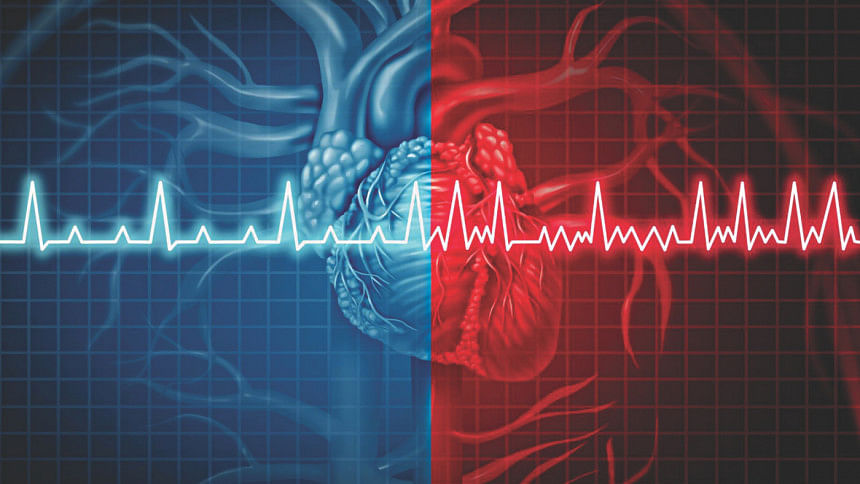Fast heart beat: A functional disease of heart

A 6 months old baby girl suddenly became very restless and fussy. Her mother noticed that she had profuse sweating for last few hours. She was not consoled by any means. The mother tried to feed her and play with her, but she was not able to make the child comfortable.
Suddenly mother felt the baby's chest and her heart is beating very fast and gradually the baby became lethargic. The mother rushed with her baby to a nearby hospital.
A general physician saw the baby and diagnosed that the baby's heart beat is around 300 beats per minute. But it was not possible to treat her in that hospital as there was no paediatric cardiologist. They immediately referred the baby to a hospital where paediatric cardiologist and intensive care support was available.
As soon as the baby reached the hospital she was managed by a paediatric cardiologist and her heart beat came down to normal. She became calm and quiet. The mother was relieved.
The baby had history of fever 10 days ago which was treated by Paracetamol and some antibiotic. She was completely well after that. Then why suddenly her heart was beating so fast?
If there is any disturbance in the origin of the signal of heart beat or abnormalities of conducting pathway, or any abnormal tissue inside the heart generating extra signal may cause increased heart beat which is called supraventricular tachycardia (SVT). This abnormal function could be detected even in mother's womb while the baby was not even delivered, if the heart would have started to beat faster. Foetal tachycardia (fast heart beat) can be detected by foetal ultrasound and can be treated. As soon as supraventricular tachycardia is detected, it should be treated immediately, otherwise the heart may fail.
SVT is more common in infants than older children. Most frequent age of presentation is the first 4 months of life. Second peak is at 8-10 years in adolescence. SVT in children more than 5 years are associated with high probability of recurrence.
Half of the patients do not have any heart diseases associated with SVT. These are called idiopathic type. Other types may be associated with structural heart diseases. SVT may occur after cardiac surgeries.
Many infants tolerate SVT well. If it is sustained for 6-12 hours, signs of heart failure develop in infants (irritability, tachypnoea or abnormally rapid breathing, poor feeding and pallor). If heart failure develops, the infant's condition deteriorates rapidly.
In older children SVT arises suddenly, lasts a short time and then disappears just as quickly. They may have chest pain, palpitation, shortness of breath, light headedness and fatigue.
Doctors use some simple manoeuvre for older children or ice-water bag on the face for few seconds for infants and teach the parents to immediately manage SVT. But for frequent recurrence in older children, they may need radio frequency catheter ablation (RFA). But ablation is not recommended in children aged one to two years. So, timely diagnosis and management of SVT can save the children's life and abolish the anxiety of the parents.
The writer is a Consultant Paediatric Cardiologist at Apollo Hospitals,
Dhaka, Bangladesh.
Email: [email protected]

 For all latest news, follow The Daily Star's Google News channel.
For all latest news, follow The Daily Star's Google News channel. 



Comments